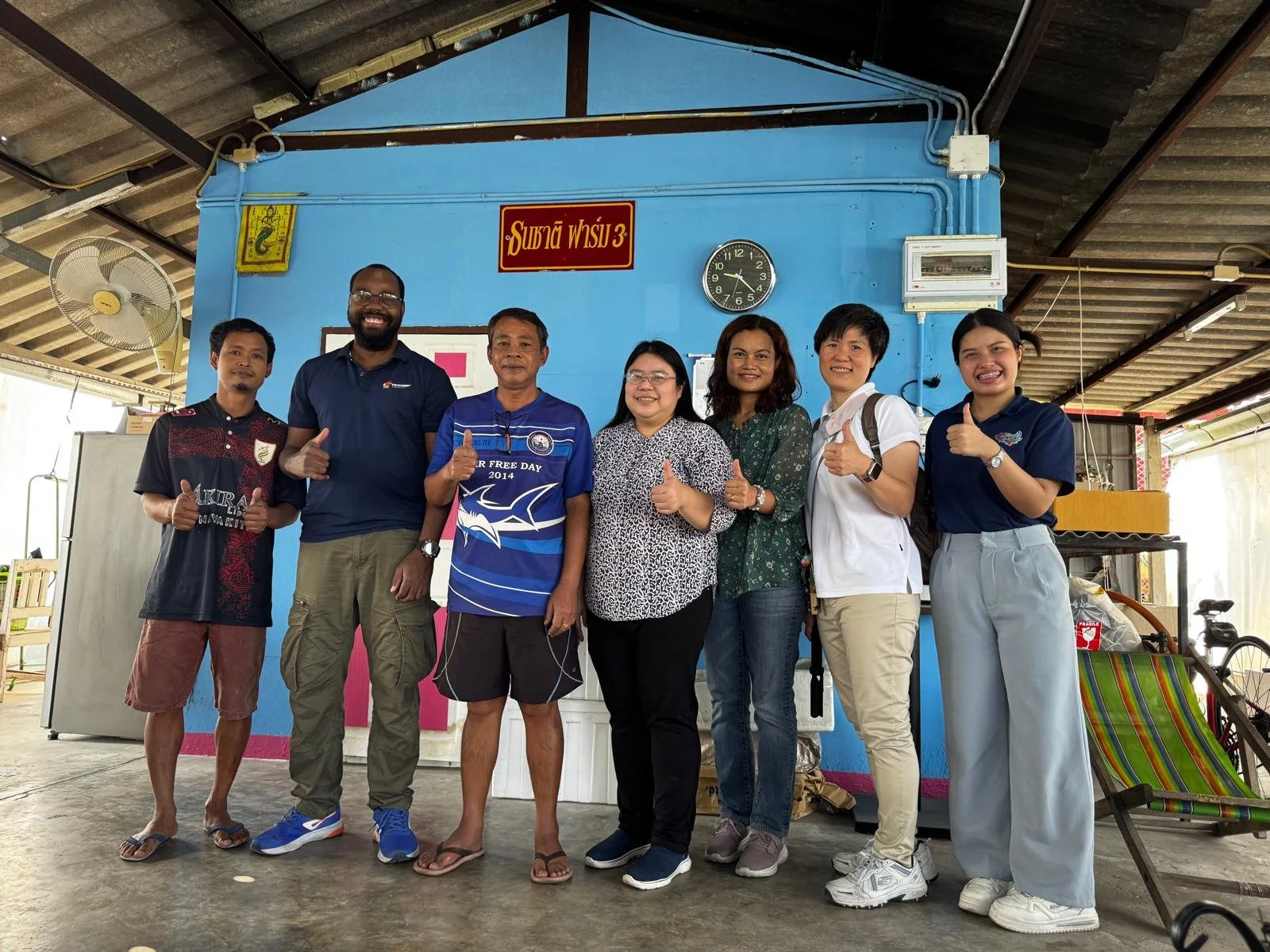Shrimp farming plays a crucial role in global aquaculture, but production often faces challenges related to shrimp health, survival rates, and welfare. Throughout the production cycle, shrimp may encounter welfare concerns caused by handling, environmental fluctuations, and transport conditions.
Transportation, in particular, can compromise shrimp welfare by deteriorating water quality and increasing stress. A collaborative project by BIOTEC, AIT, INVE, and the University of Stirling, Investigating the application of clove oil and oxygen nanobubbles to reduce stress and enhance the welfare of shrimp postlarvae during transportation, aims to explore the use of nanobubble oxygen (NB-O2) technology and clove oil, an anesthetic agent, to mitigate these impacts.
Video to share the activities and outcomes of a short research project on the use of nanobubble oxygen and clove oil to improve the welfare of shrimp during transportation.
Field trials involved transporting shrimp in oxygenated water or NB-O2 treated water, with or without clove oil, over durations of 6 and 24 hours. Results clearly showed that water quality declined during transport, with decreased pH and dissolved oxygen (DO) levels, and increased total ammonia nitrogen (TAN). However, NB-O2 effectively maintained higher DO levels compared to other treatments. Additionally, both NB-O2 and clove oil significantly reduced Vibrio spp. levels in the water, particularly after 6 hours.
Figure 1. Preparation of nanobubble oxygen-treated water for shrimp packing.
In terms of shrimp morphology, NB-O2 did not negatively affect appearance; physical characteristics remained normal throughout transport. Post transport assessments of shrimp fitness and stress tolerance revealed that shrimp in NB-O2 treated water had the highest survival rates under salinity and formalin stress tests. Immune parameter assays, such as phenoloxidase and superoxide dismutase activity, are currently being analyzed to further evaluate treatment effects.
Figure 2. Shrimp postlarvae for packing and transport
These findings suggest that NB-O2 is a promising tool for reducing transport related stress, while clove oil helps control bacterial levels, which could contribute to improved shrimp welfare. Further updates and additional insights from this research will be shared soon.


